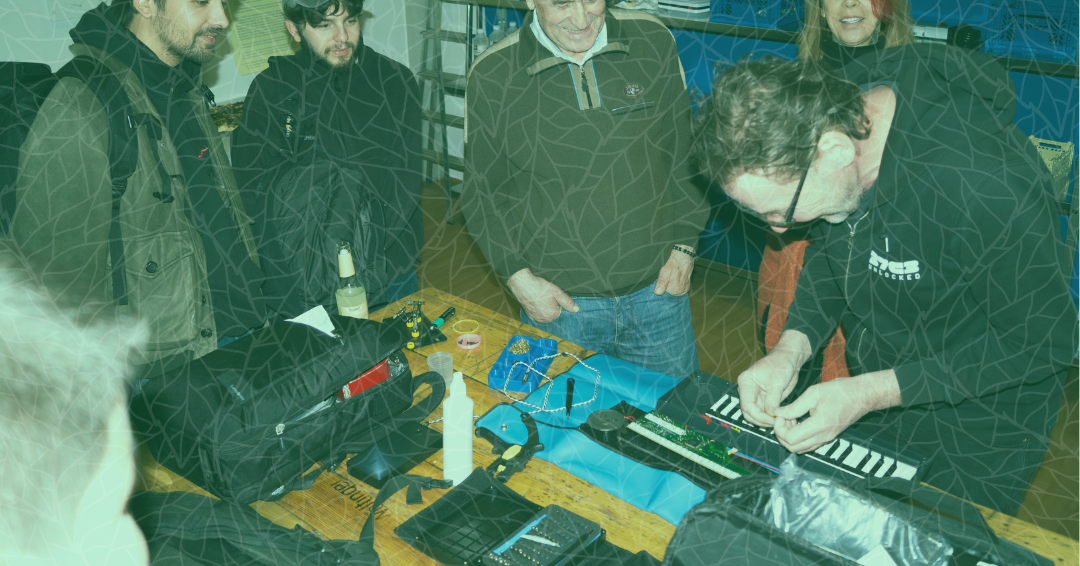The world crumbles around us. Wealth inequality is deepening while the human species is facing an existential crisis. Despite calls to accept neoliberalism as inevitable, our situation is not hopeless. However, placing hope in yet-to-materialize technology to address ecological crises and wealth inequality is audacious.
Narratives like “green growth”, “ecomodernism”, and “accelerationism” advocate for high-tech solutions, spanning political spectrums. Nevertheless, these solutions entail issues such as resource extraction, labor exploitation, and environmental degradation especially in the Global South. Further, while efficiency gains are championed, rebound effects increase consumption driving up overall energy use. Ultimately, the pursuit of more efficient machinery is inherently political, shaped by conflicts, choices, and unequal power dynamics in contemporary societies. The roots of environmental degradation and wealth inequality are intertwining with modern technology's role.
Therefore, my aim is to shed light on an alternative production framework with the commons at its core, showcasing social systems for degrowth technology. Like Adam Smith’s pin factory exemplified capitalist production, various commons-based ‘pin factories’ anticipate alternative approaches to 21st-century challenges. ‘Technology’ encompasses the entire lifecycle, and the objective is to instill it with socially and ecologically sustainable values. Here comes the notion of ‘cosmolocalism’.
The proposed ‘cosmolocal’ production paradigm may pave the way to a degrowth political economy, prioritizing socio-ecological well-being over profit motives. Cosmolocal production, utilizing digital communication networks, connects local communities to minimize material and energy footprints. It redefines the communal aspect by establishing shared infrastructures for knowledge exchange. Numerous technology initiatives, driven by motives other than profit maximization, exemplify cosmolocal production. Networked micro-factories (known as ‘makerspaces’ or ‘fablabs’), equipped with local manufacturing technologies, form a diverse constellation of locally oriented but globally connected physical places. For example, consider the L’Atelier Paysan cooperative (France) and the Farm Hack network (USA), which develop open-source agricultural machinery for small-scale farming; the LibreSpace Foundation, responsible for the first open-source satellite in orbit; the OpenBionics project, generating open-source designs for robotic and bionic devices; the Wind Empowerment association, producing small-scale ‘renewables’.
These initiatives harness a global wealth of knowledge to craft local artifacts, enhancing them with their own contributions in the form of design files, software, good practices, and expertise. Cosmolocal production, prioritizing values like sharing and solidarity, may reduce reliance on global value chains, fostering local autonomy and contributing to the global digital commons. Whatever is light (i.e., knowledge) is global and whatever is heavy (i.e., machinery) is local and ideally shared.
Despite tensions and contradictions, such as reliance on energy-intensive infrastructures like the Internet, a cosmolocal framework could unite local initiatives, preserving diversity and acting as a catalyst for genuine institutional and social change amid an existential threat. While the mentioned instances of cosmolocal production may seem unassuming and picturesque, resonating with the utopian dreams held dear by ‘leftie’ thinkers or hippies, the uniqueness of the commons lies in its reclaiming of what has slipped away through empowerment, weaving a tapestry of both old and contemporary methods.
For the past five years, my team and I delved deeply into these initiatives, leveraging their insights to drive pilot projects in Greece (the community-driven makerspaces of Tzoumakers located in mountainous Epirus), Bhutan (Nyamdrel Zo’Sa situated in rural Bhutan), and Estonia (Kopli 93 in a gentrified area in Tallinn). These initiatives have demonstrated a growing influence on learning, localising production, and fostering community development.
To conclude, one may regard these cosmolocal endeavors as the early stirrings of experimental ventures, foreshadowing an imminent and transformative shift in our approach to production. Recognizing the potential pitfalls if this path is fully engulfed by the dominant context is of utmost importance. Nevertheless, the counterculture isn't merely a presence; it's steadily gaining ground.

Kreisler, a space of community repair and share in Berlin that offers a hands-on response to the crises of overconsumption, social isolation, and infrastructural neglect.

'The State of Carbon Dioxide Removal' report, published in January 2023, was presented as ‘a first-of-its kind, independent, scientific assessment.’ Rather than questioning the quite genuine commitment of scientists and researchers working to address climate change, the Myth of Sisyphus highlights a fundamental problem with the ontology of sustainability Science itself

Despite an ever-increasing interest in degrowth scholarship, science, technology, and innovation (STI) have only been discussed marginally. It is vital to imagine different forms of STI not bound by the persisting growth imaginary.